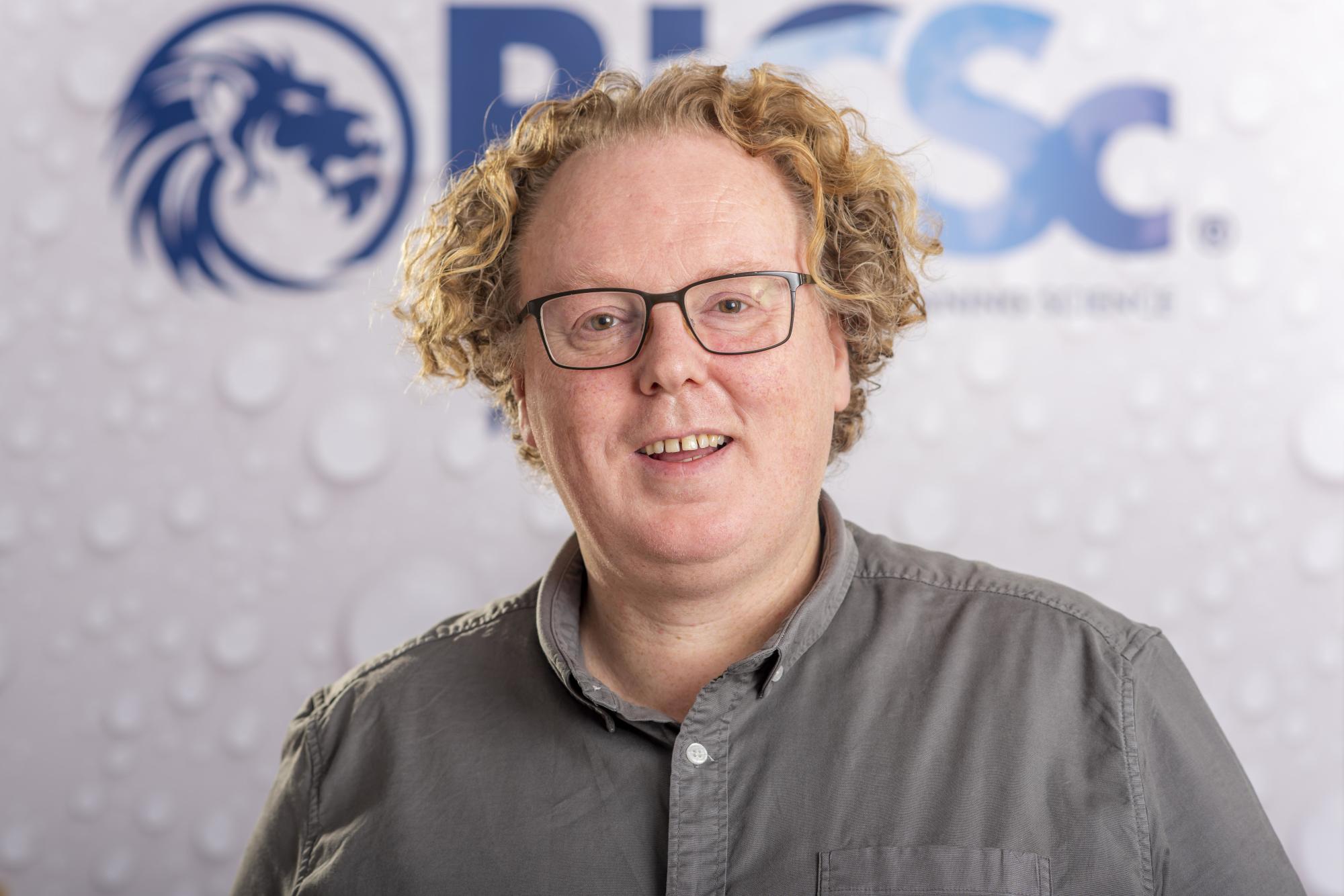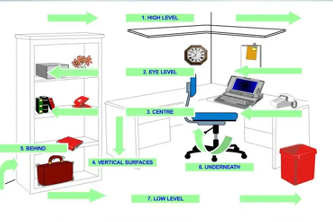BICSc Awards 2024 Winners Named
The most inspiring individuals and teams in the global professional cleaning community were recognised at the BICSc Awards 2024. Held at The Belfry Hotel, the evening...
Read Full Article
Neil Spencer-Cook and Denise Hanson from BICSc outline how they ensure BICSc standards are met in buildings, regardless of who undertakes the inspection.
Denise Hanson, FBICSc, Head of Technical Services at BICSc has over 30 years of cleaning and hygiene experience. A successful senior manager who has excellent communication, negotiation and interpersonal skills, Denise can matrix manage and motivate her team to achieve quality results. Experienced in successful multi-site mobilisations, in time and cost-critical environments and with a career that spans facilities services for local government, MOD, major food retail, shopping centres, cleanroom and blue-chip office facilities.
.jpg)
Picture: a photograph of Denise Hanson. Image Credit: BICSc
Neil Spencer-Cook, MBICSc Chief Operating Officer at BICSc joined the BICSc Senior Management team in 2015. Neil has a wealth of management expertise and has experience in hospitality and FM in numerous industries. Neil's passion is technology, especially when it can be used for efficiency purposes. Neil was the project lead on the creation of the BICSc CPSS assessor app and, more recently, delivered the Virtual Training Platform – to date over 36,000 candidates have registered.
Firstly, the Oxford English Dictionary defines expect and inspect as the following:
Expect – to think or believe that something will happen or that somebody will do something
Inspect – to look closely at something/somebody, especially to check that everything is as it should be
So, what do we inspect and how do we ensure that our company standards are met, regardless of who undertakes the inspection?
The British Institute of Cleaning Science (BICSc) would recommend that all teams responsible for inspections are brought together to inspect the same area independently at the same time. The results from these inspections should then be discussed and an agreement reached over what is acceptable and what is not.
Having clearly defined standards should therefore take the subjectivity out of the inspection, however, is it not always as straightforward as a simple pass or fail, even when standards have been agreed.
Consideration also needs to be given to how often an element is cleaned and when it was last cleaned, which adds a third option to the mix – acceptable between cleans.
If we take dust control mop sweeping as an example, the following three standards are what BICSc recommend to ensure a complete inspection has been made:
|
Task |
Unacceptable |
Acceptable between cleans |
Acceptable on completion of cleaning |
|
Dust control mop sweeping |
Visible signs of heavy contamination or build-up with accumulations of dust, fluff, impacted or loose debris. Signs of method fault with visible dust streaks giving an uneven appearance. |
Some visible light contamination with signs of some dust and debris arising from usage between cleans. |
All surface of floor is free from visible signs of dust, fluff, dirt, impacted or loose debris and dust streaks and is of an even appearance. The floor is left in a safe non-slip condition. |
These three, defined standards allow for the whole team to be assessing the floor in the same way, and allowances can be made if every task is not specified to be carried out every day.
BICSc recommends that all items to be cleaned have a clearly defined standard so that the inspector knows what is acceptable to the site. However, the standards are not the only outcomes that need to be agreed upon. The way that the inspection is carried out should also be standardised. If we look at a washroom, for example, is every inspector looking at the tops of the partitions? Are they inspecting the sink splashbacks? Have they inspected the base of the soap and towel dispensers? What about the edges and, the very often overlooked corners of the floor? These are the questions that need to be raised when carrying out a full inspection to ensure cleaning standards are met consistently and to a high quality, maintaining the health and safety of those around us.
"Given that we manage our contracts and train our staff, can we not expect them to achieve our standards? After several years of running cleaning contracts, I regularly used to explain to my managers that it is not what you expect the cleaning staff to do, it is how you inspect the sites that achieves results."
To simplify this, each area should be inspected with seven different levels in mind:
This ensures that all surfaces and areas on different levels are treated in the same way, providing consistency which is a key factor to improving or maintaining standards.
Given that we manage our contracts and train our staff, can we not expect them to achieve our standards? After several years of running cleaning contracts, I regularly used to explain to my managers that it is not what you expect the cleaning staff to do, it is how you inspect the sites that achieves results.

Picture: a graphic showing a typical office desk scene, demonstrating the seven levels of cleaning inspection. Image Credit: BICSc
This was clearly demonstrated by a secondary school that used its newly acquired grant-maintained status to take its cleaning team in-house. The team of 14 had been with our company for three years. We trained them and they were a settled group that rarely presented any issues, so I was sorry to see the site depart. We were unable to match the terms and pay rates on offer, so I understood the operatives’ reasoning behind moving to the in-house team.
Less than 12 months later, we were contacted again to provide them with a quote to clean the site again. Knowing the team, I went on site to meet with the client and discuss their requirements, and I was shocked at the poor standards I witnessed as I walked from the front doors to the head teacher’s office. I was even more shocked when I discovered it was the same team of cleaning operatives that had transferred over to direct employment.
The cleaning team were the same, the cleaning equipment had been purchased on a like-for-like basis and they had stayed with the product range that my company used. So why had the standards fallen to such a low level?
The only difference I could find was that the site no longer benefited from an in-depth cleaning inspection once a month by the area manager. The removal of this inspection was truly the only variable, and, for me, this proved definitively that it is what we inspect rather than what we expect that drives standards.
Our inspections should provide clear guidance to the cleaning team on areas that are acceptable as well as expected improvements for areas that do not meet our standards, so to ensure that standards are clearly explained, the team are trained and equipped to be able to deliver the standard and then inspect regularly to ensure we are not disappointed in our expectations.
Neil Spencer-Cook, Chief Operating Officer, BISCs will be joined by panellists Denise Hanson, Head of Technical Services, BICSc; Kelsey Hargreaves, Assistant Technical Specialist, BICSc; and Darrin McCartney, Head of Operations, Mitie Cleaning & Hygiene Services during the panel session "Expect or inspect?" in The Cleaning Show Conference Theatre on 15 March 2023 (14:30).
Picture: a photograph of Neil Spencer-Cook. Image Credit: BICSc
Article written by Neil Spencer-Cook and Denise Hanson | Published 23 February 2023
The most inspiring individuals and teams in the global professional cleaning community were recognised at the BICSc Awards 2024. Held at The Belfry Hotel, the evening...
Read Full ArticleThe British Institute of Cleaning Science is heading to Interclean Amsterdam 2024 to showcase its new training app for cleaning professionals. The new BICSc Training...
Read Full ArticleIn partnership with the University of Surrey, the British Institute of Cleaning Science and the Cleaning and Support Services Association will embark on a new study on...
Read Full ArticleThe shortlist of successful finalists for the annual British Institute of Cleaning Science awards has been announced. The industry accolades reward the outstanding...
Read Full ArticleThe Kimberly-Clark Professional Golden Service Awards were presented to winners across 19 categories, recognising exceptional standards in the FM and cleaning...
Read Full ArticleCleanology, VINCI Facilities and The Churchill Group are amongst the finalists for the Kimberly-Clark Professional’s Golden Service Awards 2022. The awards...
Read Full ArticleA virtual training initiative from The British Institute of Cleaning Science is being celebrated after thousands of candidates have signed up for the e-learning...
Read Full ArticleMitie has announced that Lorraine Davis has been appointed as Director of Cleaning Services. Davis has over 40 years of experience in the cleaning industry,...
Read Full ArticleThe UK’s largest cleaning and hygiene event has been postponed until 2-4 November 2021 at the ExCeL Centre in London. Originally scheduled for March and...
Read Full ArticleThe UK’s largest cleaning and hygiene event will go ahead on 8-10 June 2021 at the ExCeL Centre in London. Originally scheduled for March, the Cleaning Show will...
Read Full Article